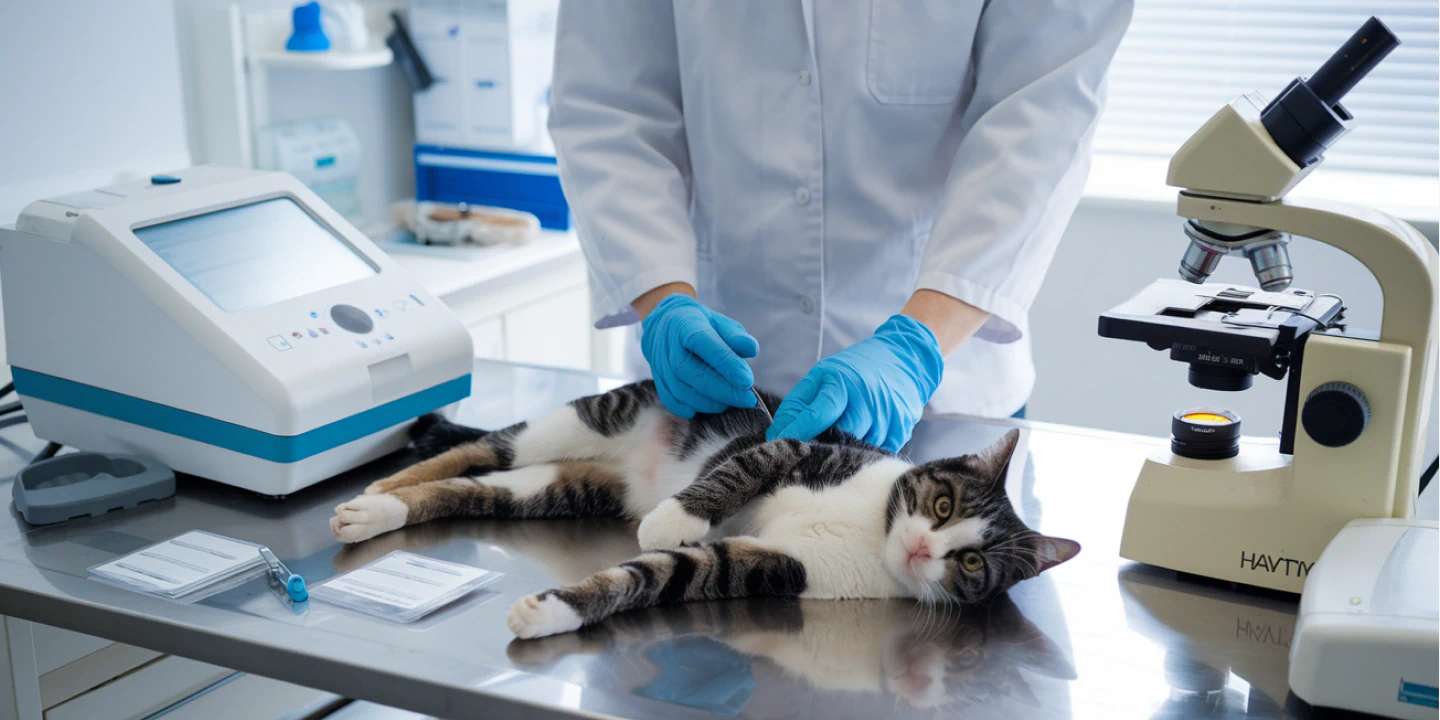What is Genetic Testing for Pets?
Genetic testing analyzes your pet’s DNA to uncover information about their breed, ancestry, and genetic markers associated with specific health risks. A small sample of saliva, blood, or tissue is used to extract DNA, which is then examined in a laboratory. Results reveal details about inherited traits, predispositions to certain diseases, and even behavioral tendencies.
When is Genetic Testing Recommended for Pets?
Identifying Breed and Ancestry:
- Helps determine a pet’s breed mix and genetic background.
- Useful for understanding potential breed-specific behaviors.
Screening for Inherited Diseases:
- Detects genetic predispositions to conditions like hip dysplasia, heart disease, or epilepsy.
- Allows for early intervention and better long-term management.
Supporting Breeding Programs:
- Ensures that breeders select healthy animals to reduce the risk of passing on genetic disorders.
- Helps improve breed quality and longevity.
Diagnosing Unexplained Health Issues:
- Aids in identifying underlying causes of chronic illnesses, allergies, or metabolic disorders.
- Provides clarity when conventional tests do not explain symptoms.
Preventive Care Planning:
- Helps veterinarians design personalized care plans based on genetic risks.
- Can optimize a pet’s diet, exercise, and medical screenings.
Benefits of Genetic Testing
- Early Detection of Health Risks:
Identifying inherited conditions early can help manage or even prevent the onset of diseases. - Customized Care Plans:
Genetic insights allow for personalized care, including diet recommendations, exercise routines, and preventive measures. - Informed Decisions:
For breeders, genetic testing ensures ethical breeding practices and healthier litters. - Understanding Behavioral Traits:
Some genetic tests can reveal predispositions to specific behaviors, helping pet owners address training needs effectively.
What Conditions Can Genetic Testing Detect?
Genetic testing can identify risks for a range of conditions, including:
- Hip Dysplasia: Common in larger dog breeds like German Shepherds and Labradors.
- Heart Diseases: Such as hypertrophic cardiomyopathy in cats.
- Degenerative Disorders: Including progressive retinal atrophy (PRA) and epilepsy.
- Cancers: Predispositions to certain types, like lymphoma or mast cell tumors.
- Metabolic Disorders: Such as diabetes or hyperthyroidism.
How Genetic Testing Works
Sample Collection:
- A simple cheek swab, blood draw, or tissue sample is collected.
Laboratory Analysis:
- The sample is analyzed for genetic markers linked to health risks.
Results and Interpretation:
- A detailed report is provided to veterinarians and pet owners, explaining any identified risks.
Should You Consider Genetic Testing for Your Pet?
Genetic testing isn’t necessary for every pet, but it can be highly beneficial in certain cases, such as:
- Adopting a mixed-breed pet with unknown ancestry.
- Owning a purebred pet with a history of breed-specific disorders.
- Addressing unexplained symptoms or health concerns.
- Planning a breeding program with health-focused goals.
Conclusion
Genetic testing is a powerful tool for uncovering vital information about your pet’s health and heritage. Whether you’re seeking to identify potential health risks, understand your pet’s ancestry, or make informed breeding decisions, genetic testing provides valuable insights that support preventive care and tailored treatment plans. If you think genetic testing might benefit your pet, consult your veterinarian to discuss the best options available.






